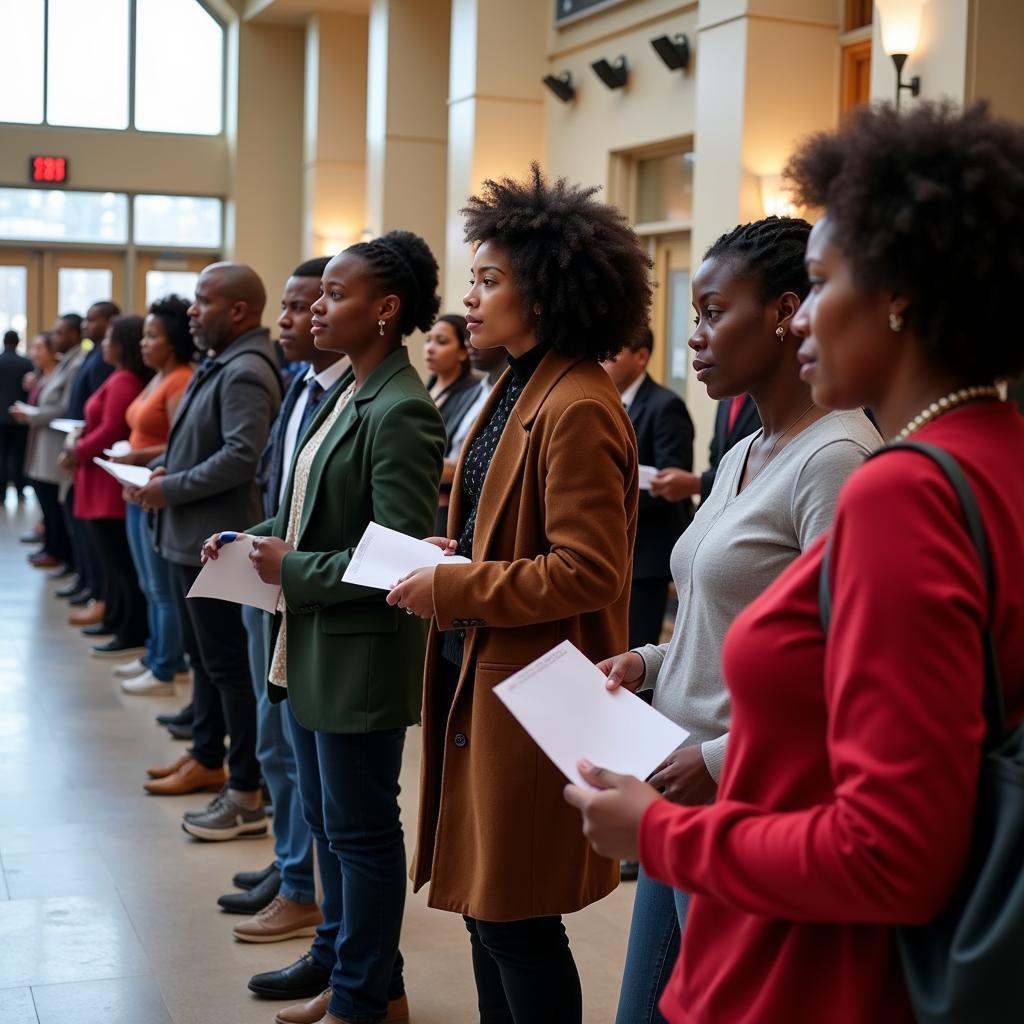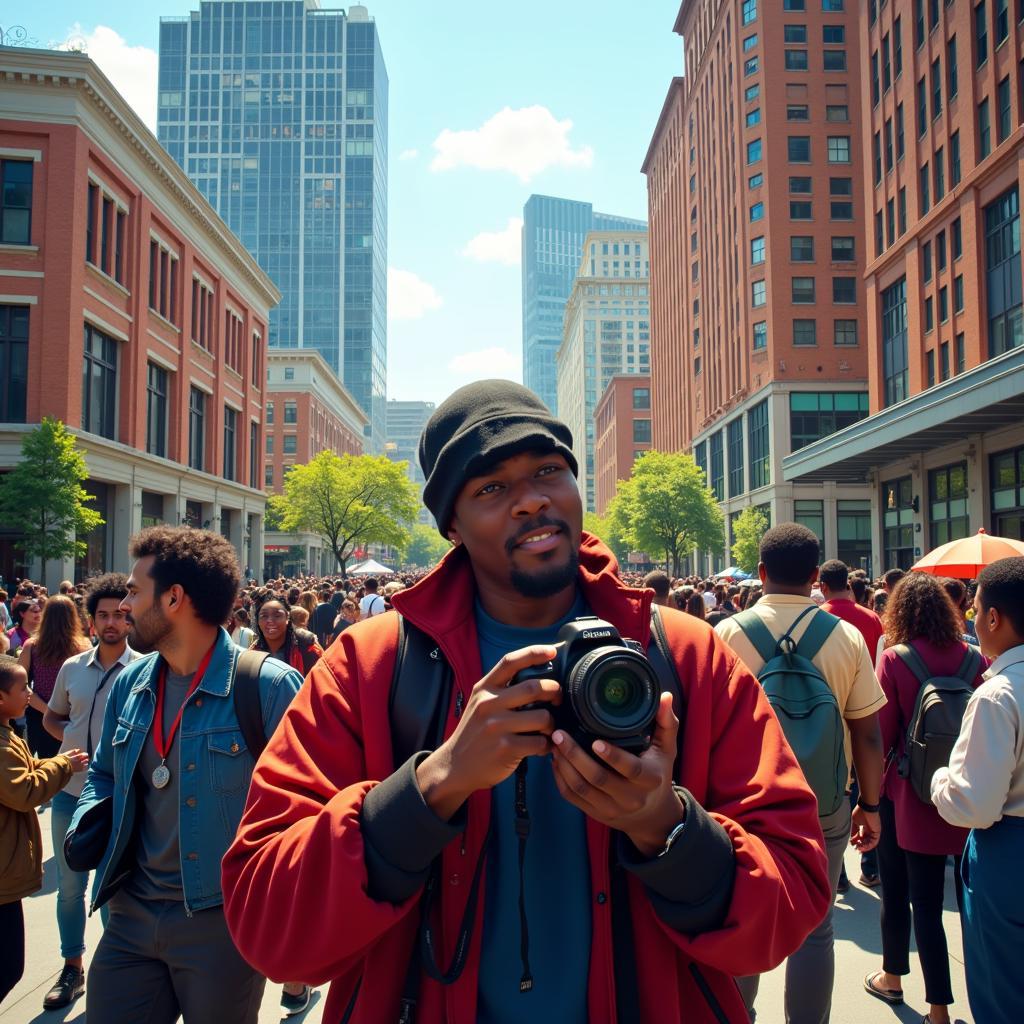A Journey Through Time: The Enduring Power of African Crochet Braids
African Crochet Braids. A hairstyle synonymous with beauty, versatility, and cultural heritage. More than just a trend, these intricate plaits tell a story, weaving a rich tapestry of tradition and style that spans generations and continents. From the bustling markets of Accra to the vibrant streets of New York, African crochet braids have become a global phenomenon, captivating hearts and turning heads with their undeniable allure.
Unraveling the History: Ancient Roots and Enduring Significance
For centuries, African crochet braids have held a profound significance in communities across the African diaspora. These elaborate hairstyles transcended mere aesthetics, serving as a powerful form of communication, social status, and cultural identity.
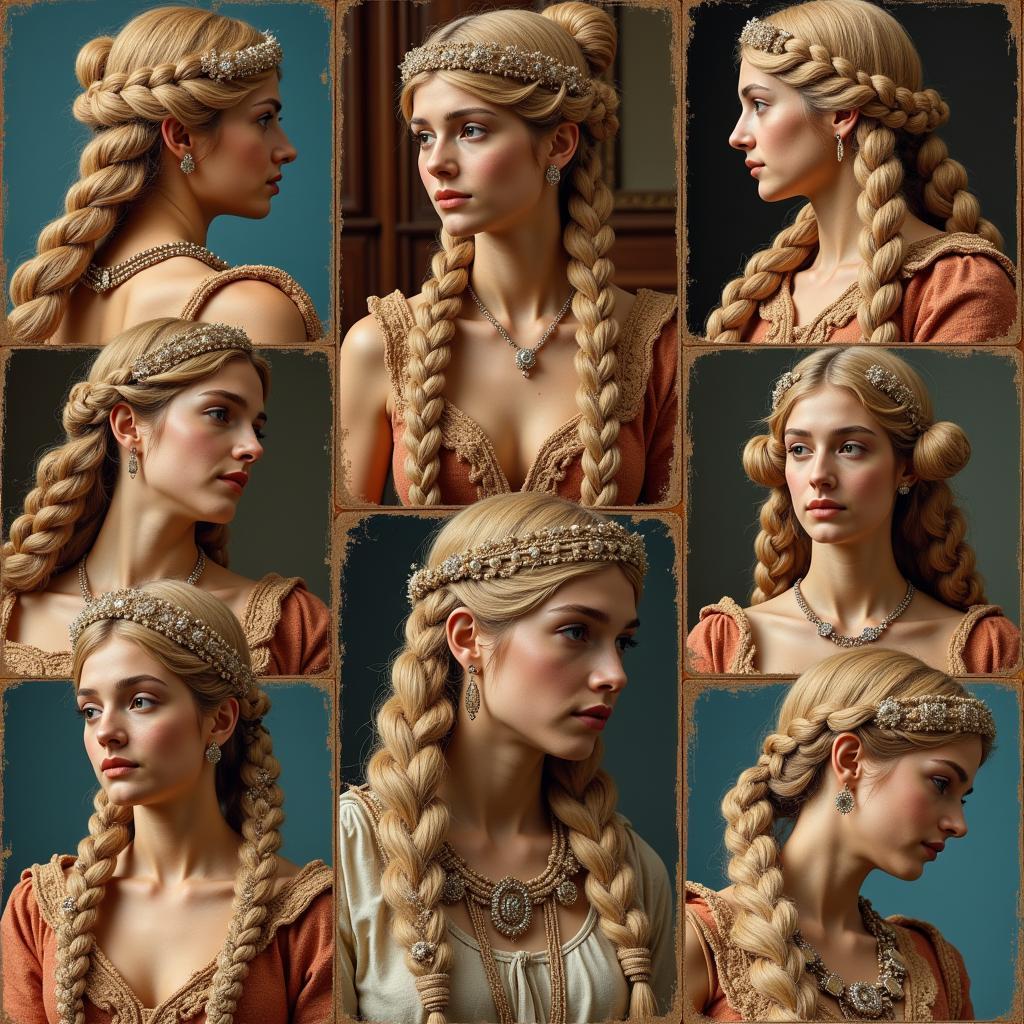 Ancient African Crochet Braids
Ancient African Crochet Braids
In ancient Egypt, elaborate braids, often adorned with gold, beads, and shells, were a symbol of wealth, power, and religious devotion. Intricate patterns and styles could denote social standing, marital status, or even family lineage. This rich tradition traveled across the Atlantic during the transatlantic slave trade, where braids became a source of solace and silent communication amongst enslaved Africans.
A World of Styles: Exploring the Diversity of African Crochet Braids
The beauty of African crochet braids lies in their unparalleled versatility. From the classic cornrows to the playful Fulani braids, each style carries its own unique flair and history. Whether you’re seeking a protective style for natural hair or a bold statement look, there’s an African crochet braid style to suit every personality and occasion.
Popular Styles:
- Cornrows: These tightly-woven braids, running close to the scalp, are a timeless classic, offering endless possibilities for creativity and personalization.
- Box Braids: As the name suggests, these square-shaped braids create a bold and geometric look, perfect for those seeking a low-maintenance yet stylish option.
- Senegalese Twists: These elegant twists, achieved by wrapping two strands of hair around each other, offer a softer and more romantic aesthetic.
- Havana Twists: Thicker than Senegalese twists, Havana twists provide a bolder and more dramatic statement.
- Fulani Braids: Originating from the Fula people, these braids are characterized by their intricate patterns, often adorned with beads and cowrie shells.
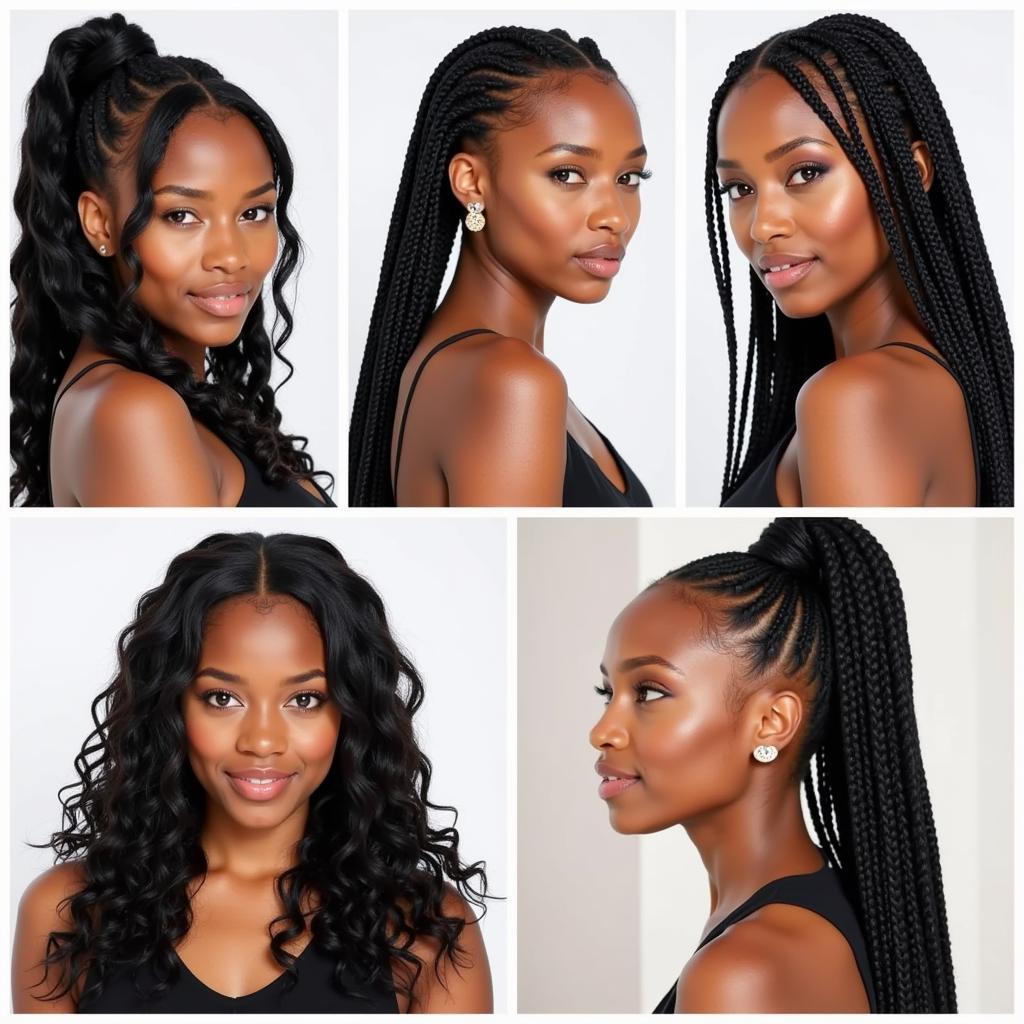 Modern African Crochet Braid Styles
Modern African Crochet Braid Styles
Beyond Aesthetics: The Practical Appeal of African Crochet Braids
Beyond their visual appeal, African crochet braids offer a range of practical benefits, making them a popular choice for women of all backgrounds.
Protective Styling:
One of the key advantages of African crochet braids is their protective nature. By keeping natural hair tucked away, crochet braids minimize breakage, reduce manipulation, and promote healthy hair growth. This makes them an ideal choice for those transitioning to natural hair or seeking to protect their hair from harsh weather conditions.
Time-Saving Solution:
In our fast-paced world, time is precious. African crochet braids provide a convenient, low-maintenance hairstyle that can last for weeks, freeing up valuable time in our busy schedules.
Versatility and Creativity:
Whether you prefer a sleek and sophisticated look or a playful and vibrant style, African crochet braids offer endless possibilities for customization. Experiment with different colors, lengths, and accessories to create a look that truly reflects your personality.
The Modern Renaissance: African Crochet Braids on the Global Stage
In recent years, African crochet braids have experienced a resurgence in popularity, gracing catwalks, red carpets, and social media feeds worldwide. Celebrities, influencers, and fashion icons alike have embraced these intricate hairstyles, cementing their status as a timeless and versatile trend.
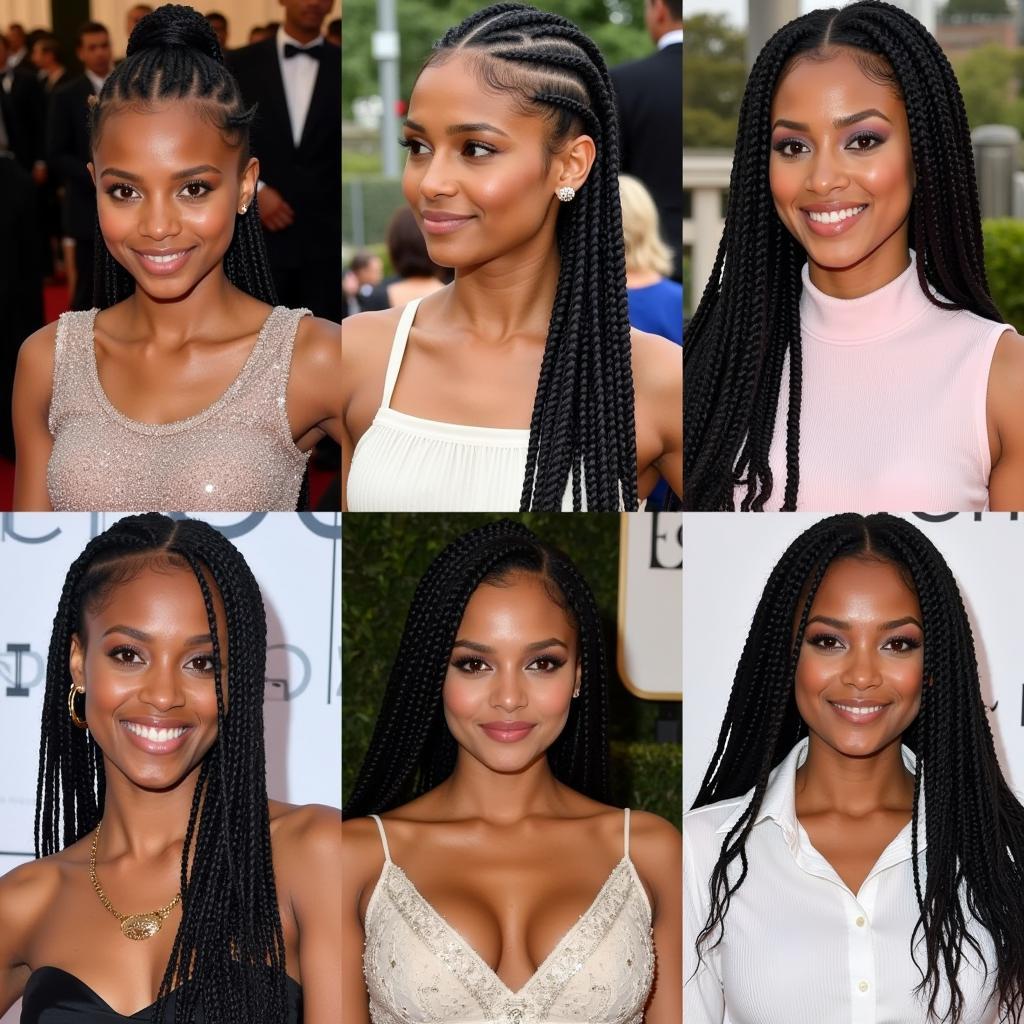 Celebrities Rocking African Crochet Braids
Celebrities Rocking African Crochet Braids
This newfound appreciation has also led to a surge in demand for skilled braiders, with salons and stylists specializing in African crochet braids popping up in cities across the globe. The art of braiding is a testament to the rich cultural heritage passed down through generations, and its growing popularity reflects a broader movement towards embracing natural beauty and celebrating cultural diversity.
Conclusion: Celebrating the Enduring Legacy of African Crochet Braids
From ancient rituals to modern runways, African crochet braids have transcended time, geography, and cultural barriers. More than just a hairstyle, they are a powerful symbol of heritage, creativity, and self-expression. As we continue to celebrate the beauty and versatility of African crochet braids, we honor the rich history and cultural significance woven into every strand.
Are you ready to embark on your own braiding journey? Explore the diverse world of African crochet braids and discover a style that speaks to your unique personality.
FAQs
1. How long do African crochet braids last?
African crochet braids typically last between 4 to 8 weeks, depending on factors like hair type, maintenance routine, and braid style.
2. Can I wash my hair with crochet braids?
Yes, you can wash your hair with crochet braids. It’s important to use a diluted shampoo, focus on the scalp, and avoid excessive manipulation.
3. Are crochet braids damaging to my hair?
When installed and maintained correctly, crochet braids are a protective style that can promote healthy hair growth. However, it’s crucial to choose a skilled braider and avoid styles that are too tight.
4. Can I swim with crochet braids?
Yes, you can swim with crochet braids, but it’s recommended to wear a swim cap to protect your hair from chlorine or saltwater.
5. How do I remove crochet braids?
To remove crochet braids, carefully snip the hair close to the knot, then gently unravel the braid. Avoid pulling or yanking, as this can cause breakage.
If you need further assistance, please contact us at:
Phone Number: +255768904061
Email: [email protected]
Address: Mbarali DC Mawindi, Kangaga, Tanzania
We have a 24/7 customer support team.
